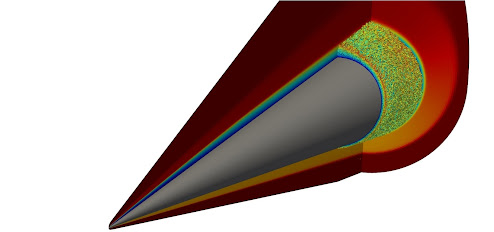Nature uses 20 canonical amino acids as building blocks to make proteins, combining their sequences to create complex molecules that perform biological functions.
But what happens with the sequences not selected by nature? And what possibilities lie in constructing entirely new sequences to make novel, or de novo, proteins bearing little resemblance to anything in nature?
That’s the terrain where Michael Hecht, professor of chemistry, works with his research group. And recently, their curiosity for designing their own sequences paid off.
They discovered the first known de novo (newly created) protein that catalyzes, or drives, the synthesis of quantum dots. Quantum dots are fluorescent nanocrystals used in electronic applications from LED screens to solar panels.
Their work opens the door to making nanomaterials in a more sustainable way by demonstrating that protein sequences not derived from nature can be used to synthesize functional materials — with pronounced benefits to the environment.

_1.jpg)
.jpg)



.jpg)
.jpg)








.jpg)